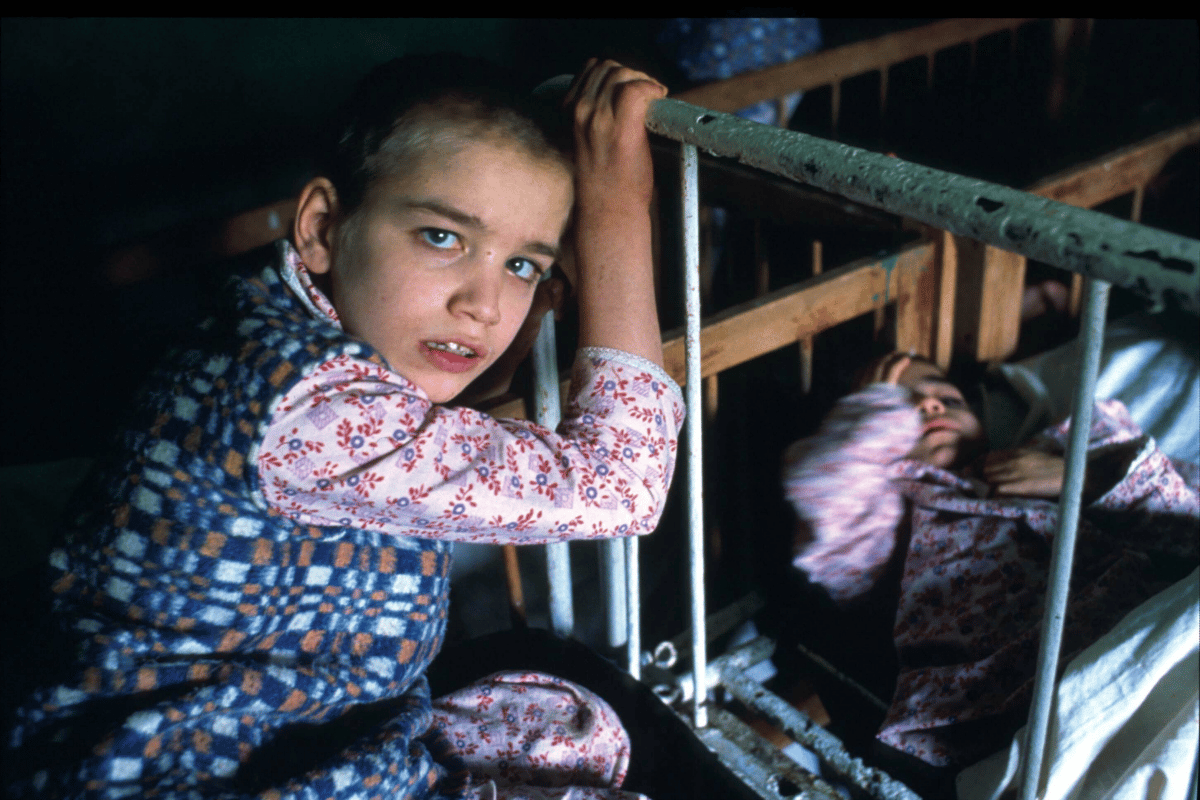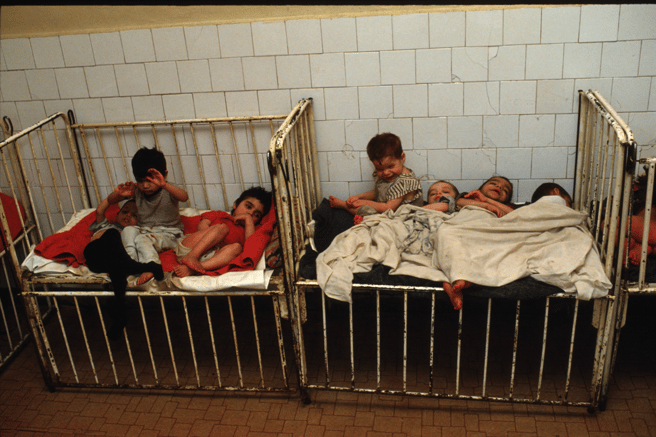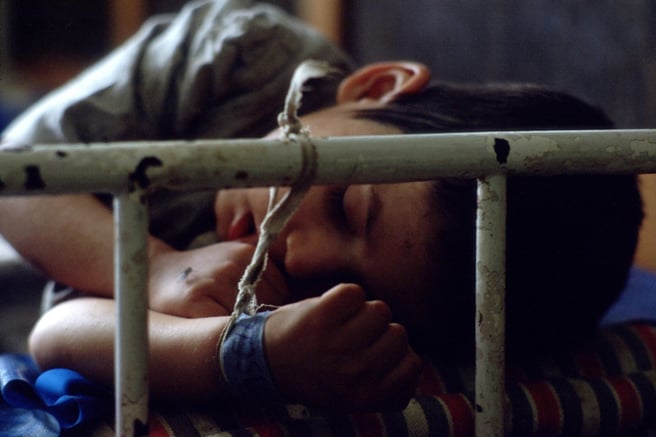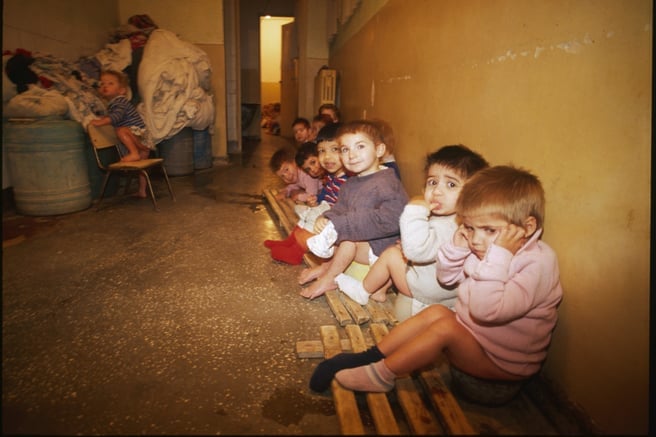
In January 1990, British journalist Bob Graham was among a wave of foreign reporters to duck beneath Europe's lifting Iron Curtain.
He was in Romania, two weeks after the assassination of the country's communist dictator, when he came upon one of the newly felled regime's darkest legacies: a state-run orphanage.
There are two things about that visit that will never leave him: the smell — rank, acrid, urine — and the silence.
"Usually when you enter a room packed with cots filled with children, the expectation is of noise, chatter or crying, sometimes even a whimper. There was none, even though the children were awake," he told GlobalPost. "They lay in their cots, sometimes two to each cot, sometime three, their eyes staring. Silently. It was eerie, almost sinister."
Staff seemed to ignore them. There was no play, no comfort, no books, toys or paintings in the room.
"[There were] stalls where children, babies, were treated like farm animals," he continued. "No, I am wrong — at least the animals felt brave enough to make a noise."
The children Graham saw that day were just some of the more than 100,000 languishing in institutions across the country.































































































